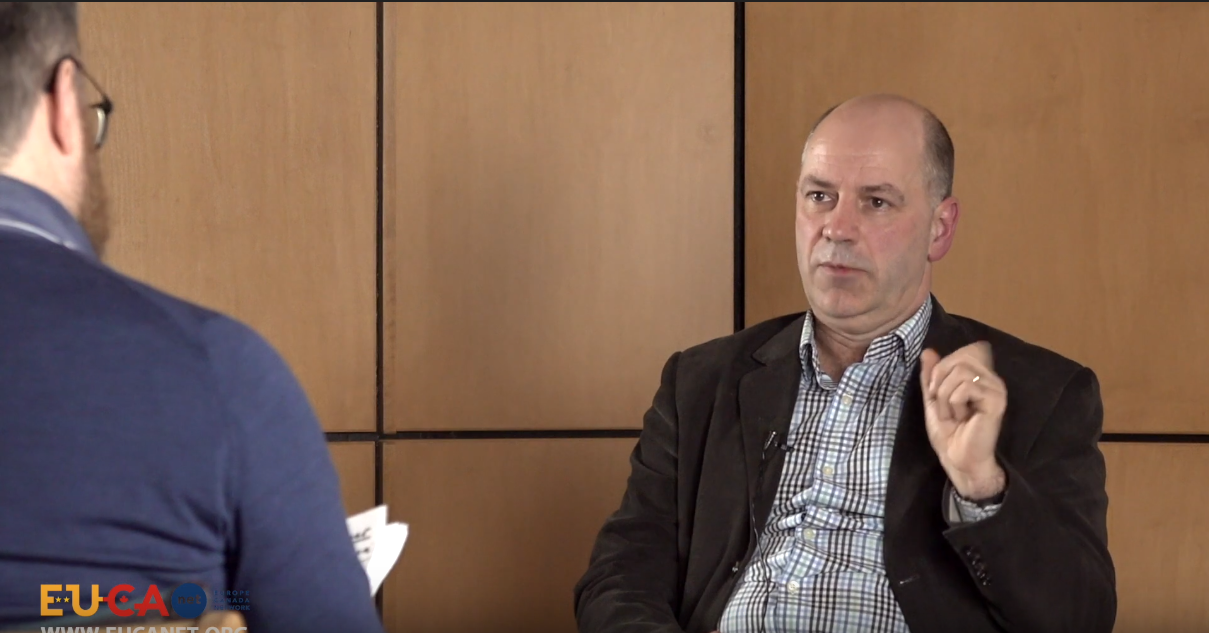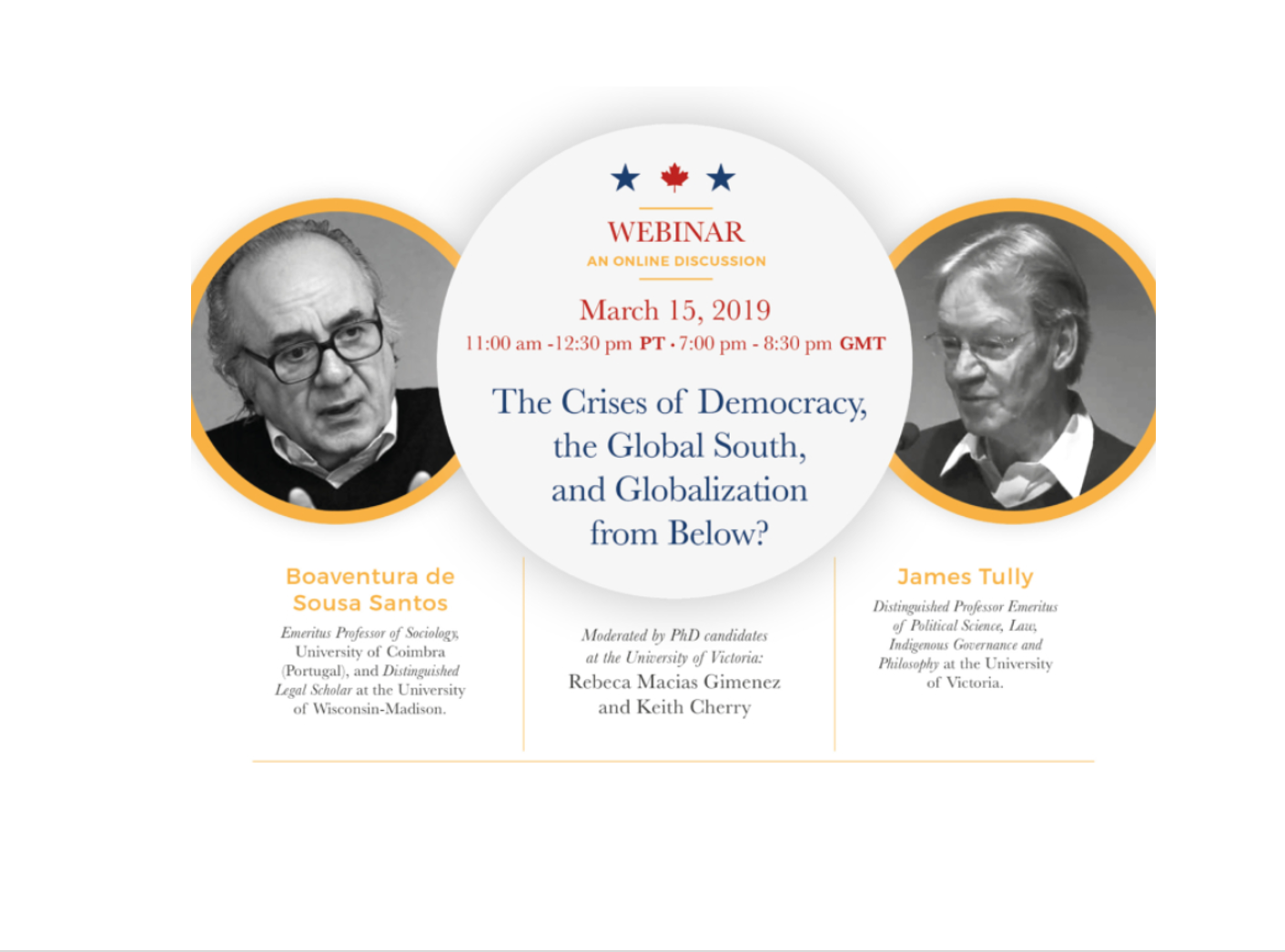Prof. Jeremy Webber: Populism, its Affinities, its Consequences, and our Responses
Jeremy Webber, Faculty of Law, University of Victoria, participated in the international conference “Constitutionalism in the Age of Populism”, March 6-8, 2020. Jeremy Webber drafted a discussion paper on “Constitutionalism in the Age of Populism” that was circulated prior and after the conference to all the conference participants. He gave a talk on “Cutting our Way through the Thicket: Populism, its Affinities, its Consequences, and our Responses”.
In his paper Webber notes that the diversity of the features attributed to populism, and the consequent variety in critiques of populism, are remarkable. It sometimes seems as though people are using the same terms to address very different phenomena. Criticisms of populism sometimes seem to be little more than criticisms of right-wing authoritarianism. “One is left wondering whether there is any distinctive meaning to populism, how it relates to the diverse phenomena often associated with the term, and whether and why attention to populism should prompt any particular responses in our theory and practice of democratic constitutionalism”, comments Webber.
Webber’s paper seeks to set the stage for the conversation in the workshop by canvassing the complex phenomena often associated with populism, proposing a set of concerns that should be considered distinctive to populism, suggesting how populism intersects with the concerns with which it is often associated, and suggesting consequences for our normative responses to populist democracy.
During the conference, Dr. Jeremy Webber also participated in the video series on Populism and Democracy and accepted the invitation to respond to a bold question: “What are the greatest challenges that populism poses to democracy?”
In this video, Jeremy Webber argues that the problems of populism are the fundamental challenges of democracy. “Populism, by claiming to voice the authentic voice of the people, really challenges us to inquire into the modes by which institutions form an authoritative voice for the public and ask ourselves whether we are doing the best we can”, Webber underlines. He stresses that in this picture, the challenge of equality of voice is absolutely central, as in any democratic system the actual functional effectiveness of people’s voices differs. And this issue is one of the chief targets of populism – notes Webber – considering that populists often try to say the elites should not be the people’s voice. So, thinking about the challenges of populism as central challenges to all forms of democracy, on the one hand, forces us to listen to what the supporters of populist politics are saying. On the other hand, it compels us to think whether we are doing the best we can with the responses to the challenges of governing ourselves collectively. “Populist movements are often voicing concerns that any true democrat has to be thinking about”, Webber states.
For Jeremy Webber, populism forces us to look at the conditions of democratic legitimacy that extend beyond simple compliance with legal structures. “I believe in institutions, in constitutional structures, but populism also forces us to think again about the broader basis of democratic legitimacy”, says the scholar. While recognizing the importance of constitutional guarantees and the role of an independent judiciary – especially with regard to all the aspects that are absolutely fundamental to facilitating democratic interaction – Webber stresses that it is the citizens that have to take responsibility for a democratic order, figuring out how should we really think democratically. This argument is said to be also valid when dealing with hate speech and fake news. Webber points out the importance of making sure that social media is not manipulated by people who do not disclose their identities, acting in bad faith but, again, he emphasizes that the people who are attracted by right wing ideas are also members of the “democratic populus” and “they have to be engaged as our citizens”, concludes Webber.
Short Bio
Jeremy Webber is Professor of Law at the University of Victoria, Fellow of the Trudeau Foundation and Fellow of the Royal Society of Canada. He held the Canada Research Chair in Law and Society and served as the Chair and Dean of Law. Prior to joining UVic, he was the Dean of Law at the University of Sydney, and Professor of Law at McGill University .
Jeremy Webber has written widely on constitutional law, Indigenous rights, federalism, cultural diversity, and constitutional theory in Canada and in relation to other countries (especially Australia). He is the author of Reimagining Canada: Language, Culture, Community and the Canadian Constitution (1994), The Constitution of Canada: A Contextual Analysis (2015), and Las gramáticas de la ley: Derecho, pluralismo y justicia (2017).
You can read more about Dr. Webber’s research here.
This video is part of the CEDoD project and was produced as part of the event “Constitutionalism in the Age of Populism”, which took place on 6-8 March, 2020 in Victoria, BC. CEDoD stands for “Canada Europe Dialogue on Democracy: Democratic Deficit and the Rise of Populism in Europe”. This project is co-funded by the Erasmus+ Jean Monnet Action of the European Union, the Centre for Global Studies, University of Victoria, the Social Sciences and Humanities Research Council of Canada (SSHRC), the Faculty of Law at the Eötvös Loránd University (ELTE), the Australian Government through the Australian Research Council and the University of Victoria: the Faculty of Law, the Centre for Global Studies, Vice President Research Office, Faculty of Humanities and the Faculty of Social Sciences. The European Union support for the production of publications does not constitute an endorsement of the contents which reflect the views only of the authors, and cannot be held responsible for any use which may be made of the information contained therein.









